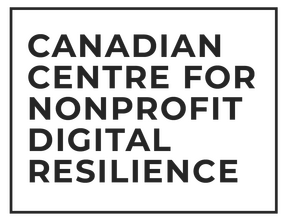
Futureproofing the Community Service Workforce
Unlocking the non-profit sector's digital potential to strengthen community services
Purpose
To provide the essential non-profit sector with the skills and tools it needs to thrive and serve the needs of the community.
Reports
This Summary Report offers a clear, accessible overview of the Futureproofing the Community Service Workforce initiative and its efforts to strengthen digital capacity in Canada’s nonprofit sector. Spanning four phases of research and prototyping, the project assessed the current state of digital skills across the sector, explored hiring and workforce data, and co-developed a hands-on prototype to address the most pressing digital skill gaps.The report highlights what was learned from testing that prototype with nonprofit organizations across the country and offers strategic recommendations for funders, sector leaders, and practitioners to drive long-term digital resilience and capacity-building.
Closing the Digital Skills Gap in Canadian Nonprofits: Summary of Findings
Key Highlights Include:- A comprehensive look at the nonprofit tech workforce, including job role trends, wage gaps, and skill demand- Analysis of top digital skills gaps: privacy and data security (32%), data-informed decision-making (24%), and data management (23%)- 81% of nonprofit workers believe digital skills are essential—but only 14% say their organization is fully integrated digitally- Only 0.8% of nonprofit staff hold tech roles, and those who do are paid ~33% less than in other sectors- The DS+ (Digital Skills Plus) Framework was developed to define and organize the digital and adjacent skills needed in nonprofit settings
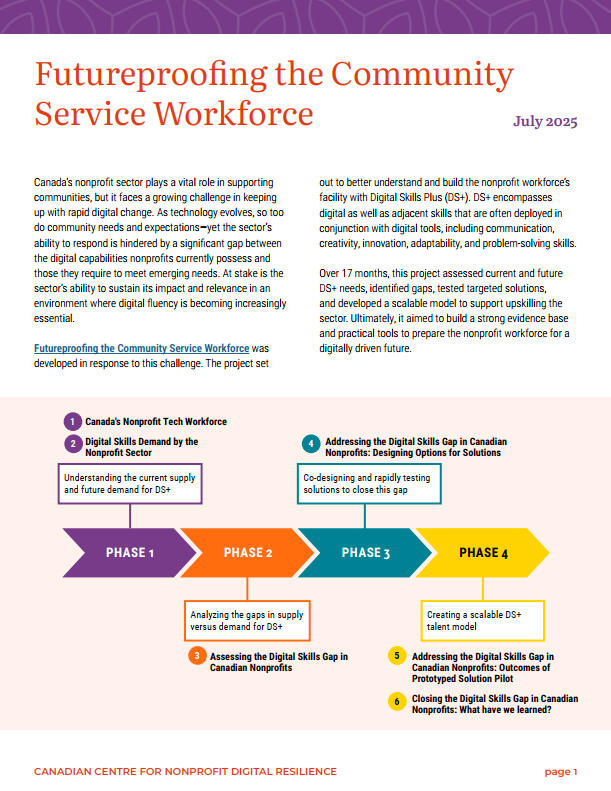
This report shares findings from Phase 1 of the Futureproofing the Community Service Workforce project, which set out to understand how nonprofits across Canada are navigating digital change. In collaboration with nonprofit partners from across the country, the project team co-designed and tested a hands-on approach to help organizations assess their data practices, identify team skill needs, and build confidence using digital tools.Through this real-world piloting, we gained a deeper understanding of what digital capacity looks like in practice and how simple, adaptable resources can help close persistent skills gaps across the sector.
Closing the Digital Skills Gap in Canadian Nonprofits: What have we learned?
Key Highlights Include:- A self-guided process for mapping workflows, evaluating data quality, and planning for digital skills development- 100% of pilot participants reported learning something valuable and applicable to their organization- 72% gained greater clarity on the digital skills required across staff roles- Tools were developed using familiar platforms like Word and Excel, making them accessible and easy to scale- Participating organizations reported improved data confidence, clearer internal processes, and stronger awareness of how to support staff capacity
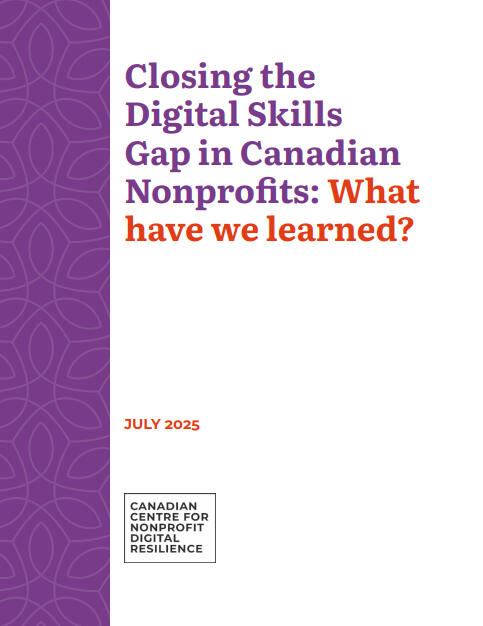
This report shares the findings from the final phase of the Futureproofing the Community Service Workforce project. In it, we tested a hands-on toolkit designed to help nonprofits strengthen their data management practices, build digital skills, and better align staff capacity to emerging needs. Developed with and tested by nonprofit partners across Canada, the prototype provides an adaptable, accessible way to take control of organizational data practices, one step at a time.Through real-world piloting, we gathered valuable insights on what works, what challenges remain, and how the nonprofit sector can move forward to close critical digital skills gaps.
Addressing the Digital Skills Gap in Canadian Nonprofits: Outcomes of Prototyped Solution Pilot
Key Highlights Include:- A self-guided process designed to improve nonprofits’ data management processes, identify skill gaps, and boost staff confidence around digital skills.- Proven success: Over 85% of pilot participants reported a better understanding of their data practices and felt more confident tackling data-related challenges.- Scalable and adaptable: Built using accessible tools like Word and Excel, making it easy to use across different nonprofit contexts and staff comfort levels.- Sector-wide potential: Organizations that tested the prototype would recommend it to others, showing strong potential for broader adoption across the nonprofit sector.- Next steps: The report identifies ways to refine and scale the prototype, helping nonprofits thrive in an increasingly data-driven world.
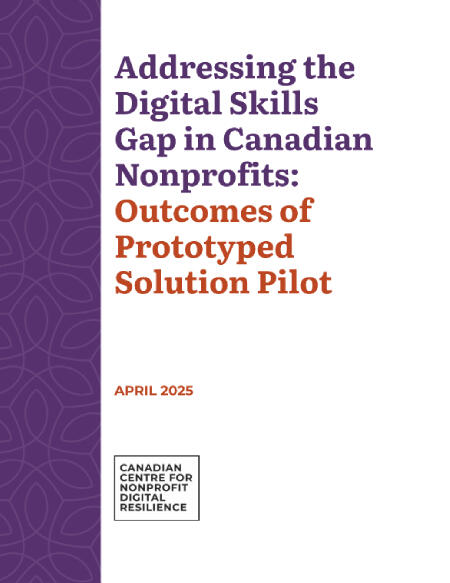
This report delves into the pressing issue of the digital skills gap within the Canadian nonprofit sector, offering a thorough analysis of the challenges faced by organizations in an increasingly digital world. Through research and collaborative efforts with key stakeholders, we present innovative, co-designed solutions aimed at enhancing digital capabilities and fostering resilience across the sector. By addressing critical areas such as data management, digital leadership, and cybersecurity, this study provides actionable insights and strategies to empower nonprofits across diverse sizes, structures and compositions. Our findings not only highlight the current state of digital readiness but also chart a clear path forward, ensuring that Canadian nonprofits can leverage technology effectively to amplify their impact and navigate the complexities of the digital age with confidence.
Addressing the
Digital Skills Gap in Canadian Nonprofits: Designing Options for Solutions
Key Highlights Include:- Co-Designed Solutions: Through collaboration with eight nonprofit organizations, we have developed four prototype options tailored to address specific digital skills gaps in the sector. These prototypes offer implementable strategies for enhancing digital competencies across various organizational roles and functions.- Digital Skills Plus (DS+) Framework: The report introduces a novel framework that articulates essential digital skills applicable to nonprofits of all sizes, structures and compositions. The DS+ Framework serves as a comprehensive guide for organizations to assess and develop their digital capabilities systematically.- Funding and Training Landscape Analysis: In-depth analysis of current funding opportunities and training resources available to Canadian nonprofits.- Priority Skills Gaps Identification: The study has pinpointed critical areas for improvement in the nonprofit sector's digital capabilities. These include data privacy and security, digital leadership, and advanced data management skills.- Actionable Prototype Options: The report presents four detailed prototype options, each addressing a specific challenge:
- Identifying digital skill needs across organizational roles
- Improving data management practices and processes
- Empowering highly skilled staff to coach and mentor colleagues
- Increasing organizational data privacy and security IQ- Implementation Roadmap: Clear next steps for selecting and piloting the most promising prototype are outlined, providing a practical path forward for addressing the digital skills gap in the nonprofit sector.
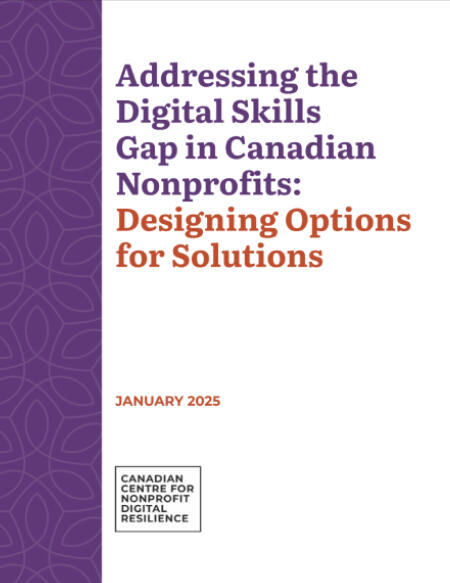
Our comprehensive research brief delves into the digital skills landscape of Canadian nonprofits, uncovering critical challenges and opportunities. It provides valuable insights into the importance of digital skills, the gaps in current skill levels, and recommendations for addressing these gaps to enhance organizational effectiveness.This report serves as a resource for nonprofits, policymakers, and funders to address the digital skills gap and strengthen the sector's resilience in an increasingly digital landscape.
Assessing the Digital Skills Gap in Canadian Nonprofits
Key Findings include:- Digital Skills Importance: 81% of respondents deemed digital skills as "necessary" or "very important" for their organizations' mission, highlighting the crucial role of digital proficiency in achieving nonprofit goals.- Skills Gaps: Nearly half of respondents described their organizations as having "basic" digital skills or as "just starting out," indicating a significant gap between perceived importance and actual skill levels.- Financial Constraints: Limited uptake of paid resources due to financial constraints suggests a need for targeted, low-cost guidance to empower nonprofits in mapping and implementing their digital development strategy.
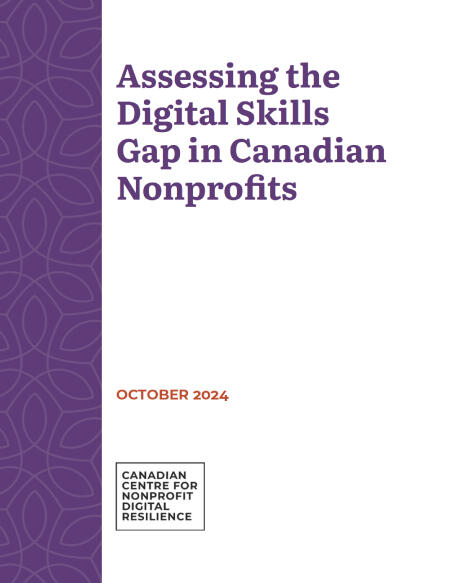
The Canadian nonprofit sector is undergoing a significant digital transformation, facing adverse challenges in keeping up with the increasing demand for digital skills. This insightful report delves deep into Canadian census data to evaluate the composition of the tech workforce within the nonprofit sector.
Canada’s Nonprofit Tech Workforce
Key Findings include:- Nonprofits have a shortage of tech workers, with less than 1% of their workforce in tech occupations, compared to an average of 5% in other industries.- Tech workers in the non-profit sector earn significantly less, with an average annual salary of over $30,000 less than tech workers in other industries, representing a 33% pay cut.- Even for the same job, tech workers in non-profits earn substantially less, with information system specialists earning 20% less in nonprofits compared to other sectors.- The nonprofit tech workforce is more diverse in terms of gender and Indigenous identity, but women, Indigenous Peoples, and visible minorities are paid less for tech work compared to other workers within nonprofits.
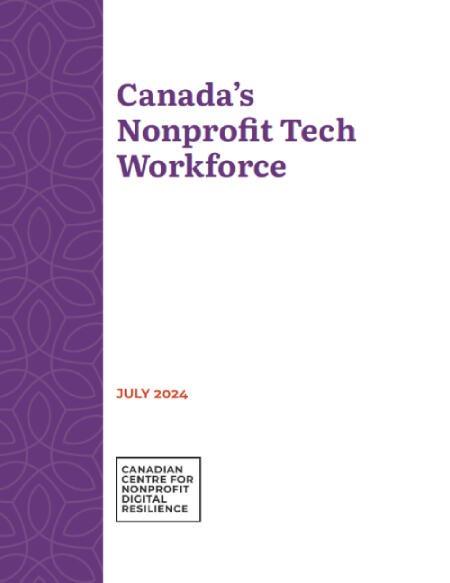
Despite employing over 2 million Canadians, many nonprofits lack the necessary digital skills to keep pace with increasing demands. This informative report emphasizes the importance of understanding the current demand for digital skills within this sector and provides valuable insights through the analysis of job postings data.
The Demand for Digital Skills in Canada's Nonprofit Sector
Key insights include:- Nonprofit jobs exhibit a lower demand for digital skills compared to adjacent knowledge sector jobs. They also contain fewer unique digital skills, particularly in software/product development and data digital skills, which are generally higher in digital intensity.- The top demanded Microsoft skill in nonprofit jobs is Microsoft Office, indicating a greater need for basic office software proficiency compared to more technical skills required in other sectors.- Although the digital needs for nonprofit jobs may not be as strong as other knowledge sector jobs, there is evidence that nonprofit jobs are adapting to digital skills trends to some extent.
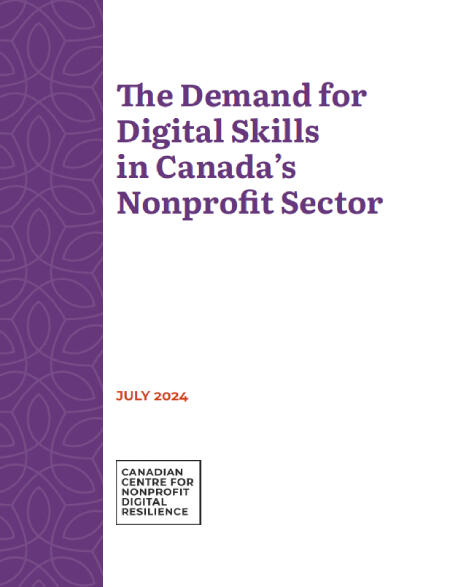

Building Data Management Capacity Prototype
This prototype was developed, as part of the Futureproofing the Community Service Workforce, to build data management skills and help organizations digital skills needs through guided activities that prompt users to document data processes, identify key data points, assess processes for potential improvements, and identify required skills.
The Building Data Management Capacity prototype aims to help organizations to:- Strengthen digital skills through practical exercises that aim build confidence and capacity for making
informed decisions about data and data management- Deepen understanding of data and processes to drive improvements in efficiency and data quality- Identify role-specific skills needs to support key processes, enabling targeted training and skills
development to staff rolesTo learn more about the prototype’s development and the outcomes of the pilot in Addressing the Digital Skills Gap in Canadian Nonprofits: Outcomes of Prototyped Solution Pilot report.
How to use this prototype
This prototype consists of one key input activity, creating a User Story Map, and three distinct synthesis activities that build on the user story map. Each activity takes approximately two to four hours to complete and the whole process is meant to be completed over several weeks to provide appropriate time for reflection and validation among staff.The four instructional documents for each activity contain an overview of the activity, learning objectives, preparatory guidance, and step-by-step instructions including links to templates and examples. This prototype is meant to guide, not prescribe an approach. While each activity offers suggested formats, templates, and examples, feel free to adapt them to fit your organization. We encourage you to use a process you have already mapped, are familiar with or prioritize synthesis activities for your organization's current needs or time constraints.
Key Input Activity: User Story Mapping Activity
This User story mapping activity guide will help you select an appropriate process and provide step by step instructions on how to create a user story map. This visual tool documents each step of the process including who is doing the action, what data is collected and how these components interact. The output of this activity will serve a foundation for following synthesis activities.
Synthesis Activity 1: Understand your data
This Understand your data activity guide will provide guide will provide instructions for 3 key sub-activities that will help you:- Describe your data and what it is being used for- Name who has access to what data- Reflect on your data quality
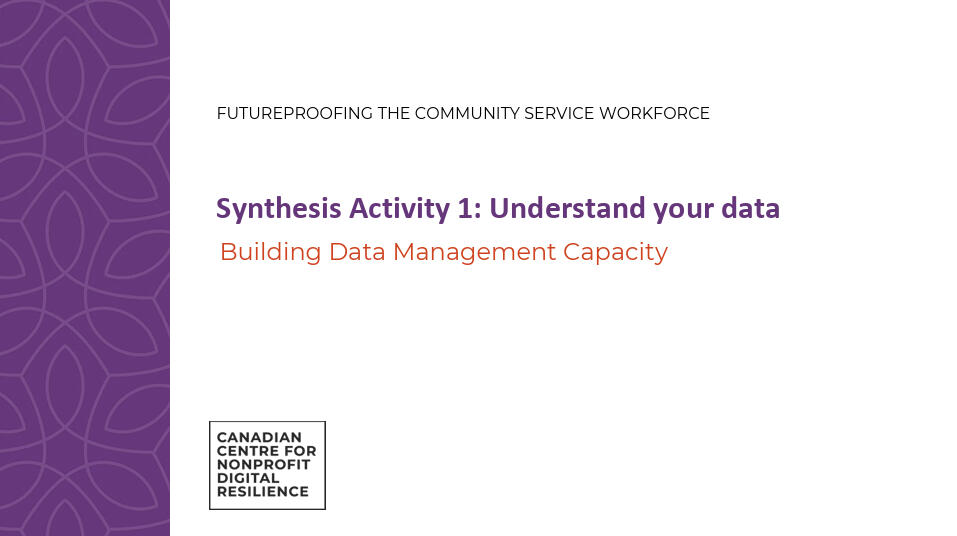
Synthesis Activity 2: Assess your process
This Assess your process activity guide will provide instructions for 3 key sub-activities to reflect on your selected process by:- Examining how users interact with your process- Uncovering pain points and redundancies- Identify opportunities for automation
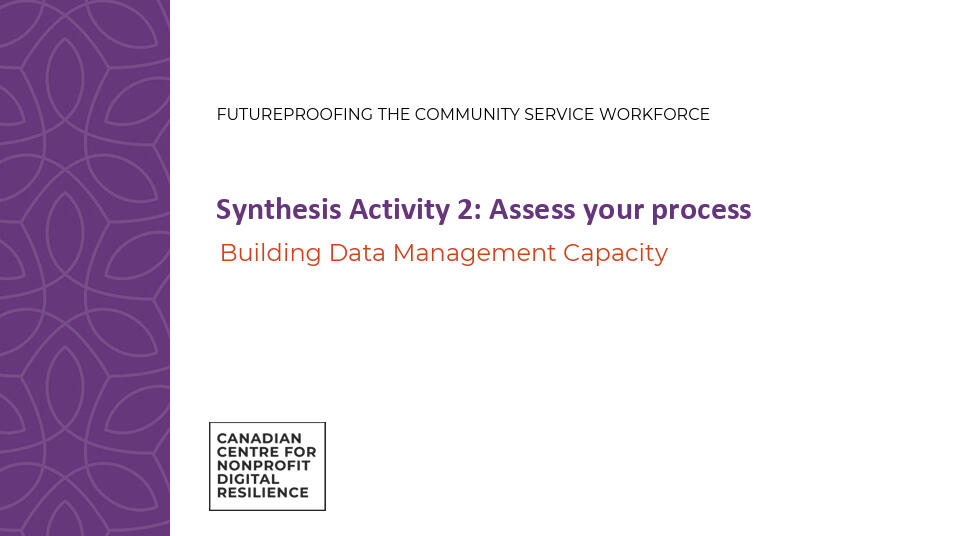
Synthesis Activity 3: Identify skills needs
This Identify skills needs activity guide will provide instructions for 2 key sub-activities to understand the skills needed for your process by:- Articulate required skills for each role involved in the process- Identify opportunities for upskilling by referencing the Digital Skills+ Framework and linked resources.
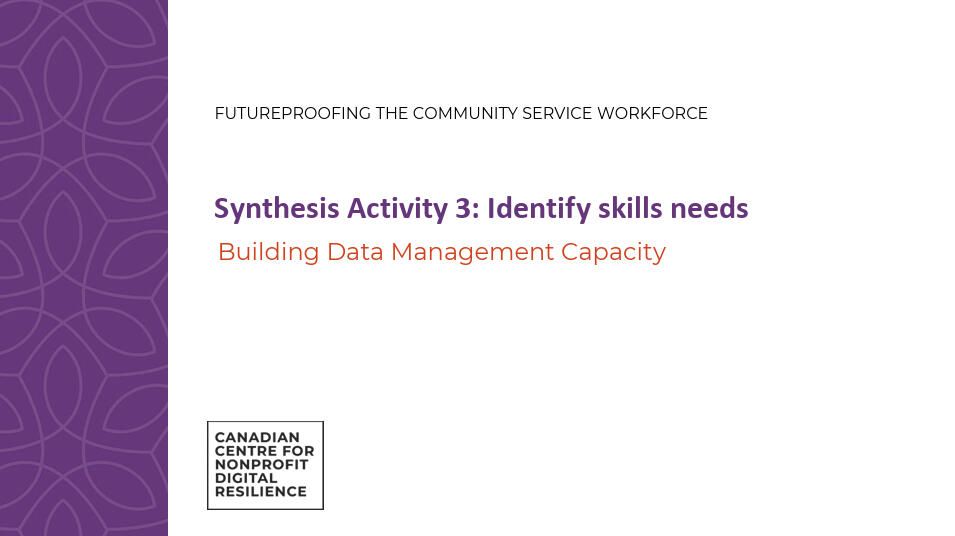
What's next?
To continue to refine your data processes and intentionally plan for changes, download our simple project management template to help define, prioritize and plan for your next steps, or use your own.This prototype and associated tools are meant to be used again and again and to be expanded as you review additional processes in your organization. We encourage you to continue to treat the outputs you have created from these activities as living documents, that are continuously updated to:- Support continuous improvement of your organization’s processes,
Facilitate onboarding new staff or upskilling existing staff.- Encourage intentional planning around your data and data related processes.- Building data management capacity is a long-term effort that builds the foundation for more advanced data related activities.
How was this prototype developed?
This prototype was co-designed with 8 nonprofit design partners, who contributed to the identification, development and piloting of this prototype. We would like to thank all our design partners for their valuable feedback and contributions to developing this prototype.
- À Deux Mains/Head & Hands (Montreal, QB)
- CUPS Calgary (Calgary, AB)
- Inclusion NB (Fredericton, NB)
- Malvern Family Resource Centre (Scarborough, ON)
- Skills for Change (Toronto, ON)
- Women's Economic Council (Toronto, ON)
- YMCA Winnipeg (Winnipeg, MB)
- Yukon Learn (Whitehorse, YK)

Mission
This project is designed with a strategic 17-month timeline to address the growing skills gap.
Our mission is to:
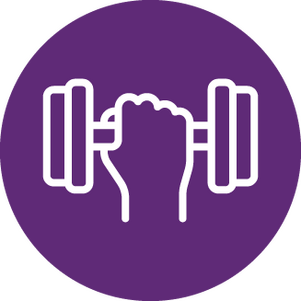
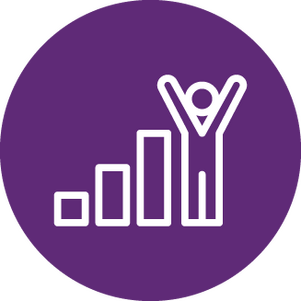
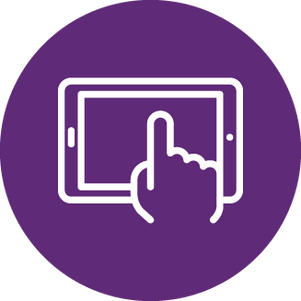
Future-Proof Non-Profit Organizations:
Ensuring that non-profit entities are resilient and can continue to excel in their service delivery amidst the ever-changing digital era.
Upskill the Workforce:
Developing foundational and advanced digital competencies, we aim to elevate the capabilities of the workforce within the non-profit sector.
Apply the Skills for Success Model:
Providing practical, tailored training that is both effective and broadly applicable, ensuring that a wide array of non-profit professionals can benefit and implement new skills immediately.
Project Objectives:

Understand current supply and future demand for Digital Skills Plus (DS+)

Analyze DS+ gaps in demand versus supply
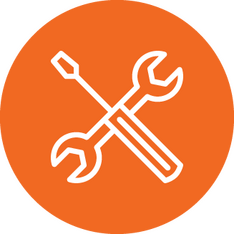
Co-design and rapidly test solutions to close the gap

Create a scalable DS+ talent model
The outcomes of this project will include public reports, research briefs, and recommendations to inform the sector's future training and talent strategies.
What is DS+?
Digital Skills Plus (DS+) encompasses digital skills as well as communication, creativity, innovation, adaptability, and problem-solving skills.

Approach
Our approach is twofold, emphasizing both practicality and scalability:

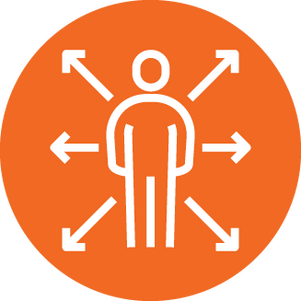
Foundational Skills Training:
A comprehensive suite of training modules designed to instill critical digital skills
Transferable Skills Development:
Versatile skills that can be applied across various roles and challenges, ensuring long-term adaptability.
Impact
By the completion of this transformative 17-month journey, the non-profit sector in Canada will be robustly equipped to:
▸ Navigate the complexities of the digital age with confidence and expertise.
▸ Enhance their service delivery through the integration of digital solutions.
▸ Foster a culture of continuous learning and innovation within their organizations.
Project partners

Imagine Canada, Blueprint ADE, The Dais, and Digital Governance Council have collaboratively united to tackle a substantial national labor market issue through the Futureproofing the Community Service Workforce.This initiative is led by a formal steering committee that convenes monthly, complemented by an advisory committee that meets quarterly.Project funded by the Government of Canada's Skills for Success program.

Advisory Committee
Get Involved
We warmly extend an invitation to non-profit organizations, funders, experts, and thought leaders to play an integral role in our transformative project.Join our co-design workshops, share your insights and expertise, or support us by completing surveys and sharing with others who may be interested. By joining forces, we have the unique opportunity to co-create an impactful upskilling model that promises widespread benefits across the sector. Your involvement is not just participation—it's a step towards pioneering a future where the sector thrives through enhanced skills and knowledge. Let's collaborate to forge a path of growth, innovation, and success.
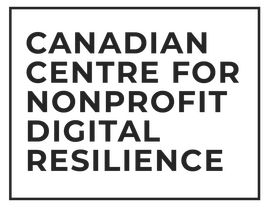
Futureproofing the
Community Service Workforce
Unlocking the non-profit sector's digital potential to strengthen community services
© Canadian Centre for Nonprofit Digital Resilience, 2024
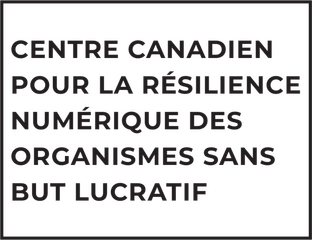
Une main-d’œuvre communautaire outillée pour l’avenir
Libérer le potentiel numérique du secteur à but non lucratif pour renforcer les services communautaires
Objectif
Fournir au secteur à but non lucratif essentiel les compétences et les outils nécessaires pour prospérer et répondre aux besoins de la communauté.
Rapports
Ce rapport de synthèse propose un aperçu clair et accessible de l’initiative Une main d'œuvre communautaire outillée pour l’avenir et de ses efforts pour renforcer les capacités numériques du secteur à but non lucratif au Canada. S’étalant sur quatre phases de recherche et de prototypage, le projet a permis d’évaluer l’état actuel des compétences numériques dans le secteur, d’analyser les données sur l’emploi et les profils de compétences, et de co-développer un prototype pratique pour répondre aux lacunes les plus pressantes.Ce résumé présente les apprentissages tirés des tests réalisés avec des organismes à travers le pays et propose des recommandations stratégiques pour les bailleurs de fonds, les leaders sectoriels et les praticiens souhaitant favoriser la résilience numérique et le renforcement des capacités à long terme.
Combler le fossé en matière de compétences numériques dans les organismes à but non lucratif au Canada : Résumé des conclusions
Faits saillants :- Un portrait complet de la main-d’œuvre technologique du secteur sans but lucratif : les tendances en matière d’emplois, les écarts salariaux et la demande de main d’oeuvre- Analyse des principales lacunes en matière de compétences numériques : protection des données (écart de 32 %), prise de décision fondée sur les données (24 %), gestion des données (23 %)- 81 % des travailleur.se.s du secteur estiment que les compétences numériques sont essentielles, mais seulement 14 % jugent leur organisme pleinement intégré numériquement- Seulement 0,8 % du personnel des OBNL occupe un rôle technologique, avec un écart salarial moyen de 33 % par rapport aux autres secteurs- Le cadre Compétences Numériques Plus (DS+) a été développé pour organiser les compétences numériques et connexes essentielles au sein des OBNL
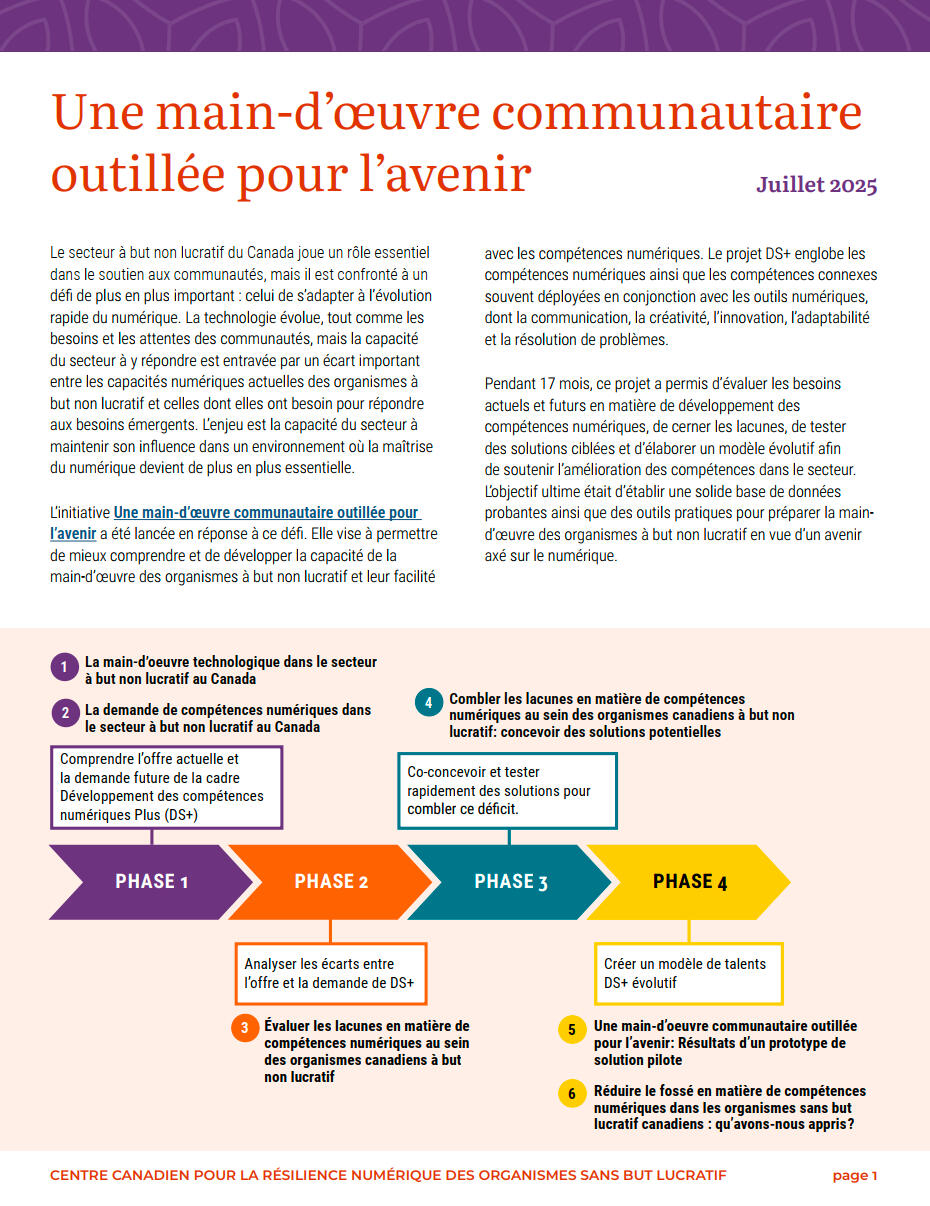
Ce rapport présente les résultats de la Phase 1 du projet Une main-d’œuvre communautaire outillée pour l’avenir, qui visait à comprendre comment les organismes à but non lucratif (OBNL) au Canada s’adaptent à la transformation numérique. En collaboration avec des partenaires OBNL de partout au pays, l’équipe de projet a conçu et testé une approche pratique pour aider les organismes à évaluer leurs pratiques en matière de données, cerner les besoins en matière de compétences de leurs équipes, et renforcer la confiance dans l’utilisation des outils numériques.Grâce à cette expérimentation sur le terrain, nous avons acquis une meilleure compréhension de ce que signifie la capacité numérique dans la pratique, et de la manière dont des ressources simples et adaptables peuvent contribuer à combler les écarts persistants en matière de compétences à l’échelle du secteur.
Combler les lacunes en matière de compétences numériques dans les organismes à but non lucratif au Canada : Qu’avons-nous appris?
Faits saillants :- Un processus autonome pour cartographier les flux de travail, évaluer la qualité des données et planifier le développement des compétences numériques- 100 % des participant.e.s au projet pilote ont déclaré avoir acquis des apprentissages utiles et applicables à leur organisme- 72 % ont obtenu une meilleure clarté sur les compétences numériques requises pour les différents rôles au sein de leur équipe- Les outils ont été conçus à l’aide de plateformes familières comme Word et Excel, ce qui les rend accessibles et faciles à adapter- Les organisations participantes ont signalé une meilleure confiance dans la gestion des données, des processus internes plus clairs, et une meilleure compréhension des moyens de soutenir le développement des compétences au sein de leur personnel
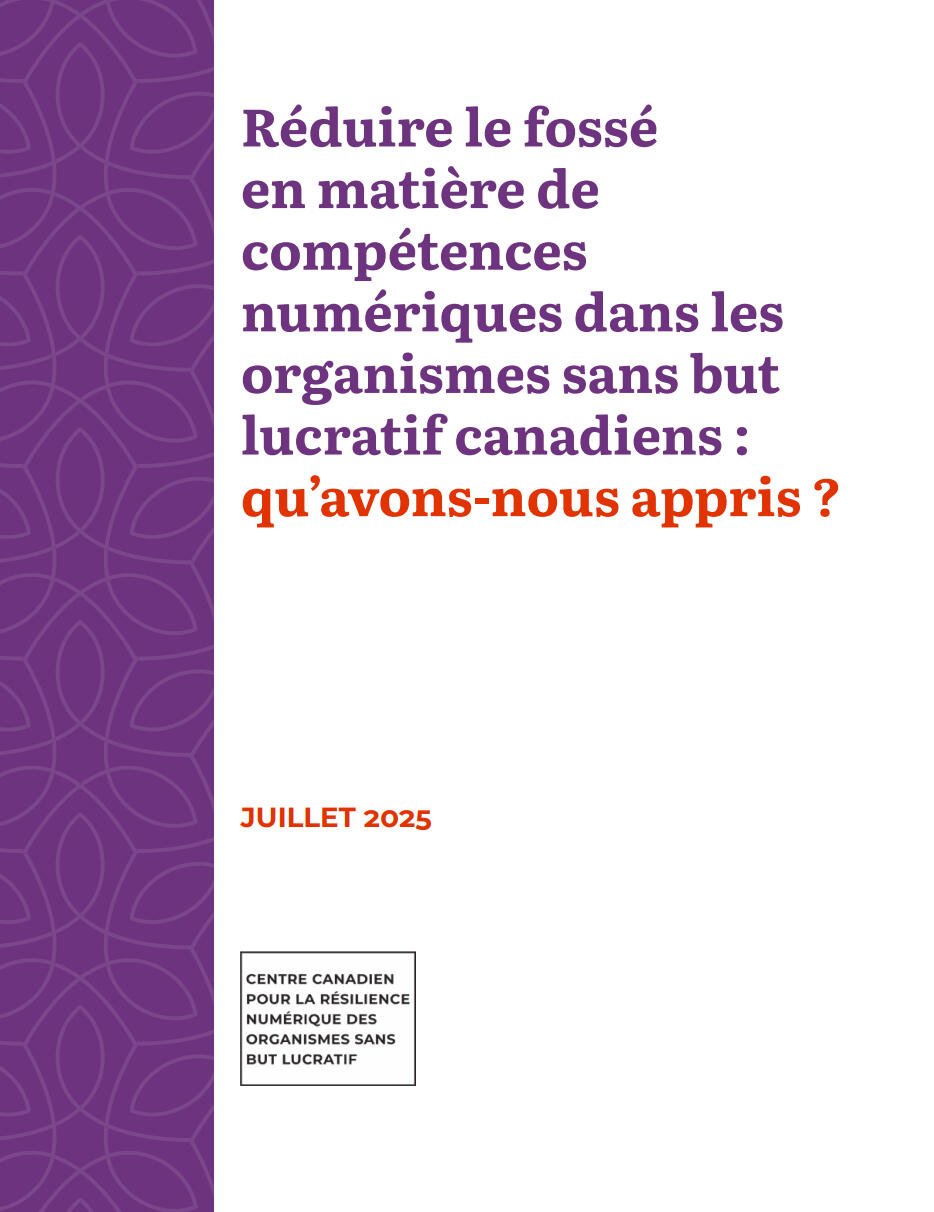
Ce rapport présente les conclusions de la phase finale du projet « Une main-d’œuvre outillée pour l’avenir ». Nous avons testé une boîte à outils pratique et concrète, conçue pour aider les organismes sans but lucratif (OBNL) à renforcer leurs processus en matière de données, à développer leurs compétences numériques et à mieux aligner les capacités de leur personnel aux besoins émergents. Développé et testé par différents partenaires du secteur sans but lucratif partout au Canada, le prototype offre une approche adaptable et accessible pour prendre en main les pratiques organisationnelles en matière de données, une étape à la fois.Grâce au projet pilote réalisé dans des situations réelles, nous avons recueilli des informations sur ce qui fonctionne, les défis qui subsistent et les moyens dont dispose le secteur pour combler les lacunes en matière de compétences numériques.
Une main-d’œuvre communautaire outillée pour l’avenir : Résultats d’un prototype de solution pilote
Principales conclusions :- Un processus autoguidé conçu pour améliorer la gestion des données des OBNL, identifier les lacunes en matière de compétences et renforcer la confiance du personnel à l’égard des compétences numériques.- Succès avéré : plus de 85 % des participant.e.s au projet pilote ont déclaré mieux comprendre les pratiques en gestion de données et se sentir plus confiant·e·s face aux défis liés aux données.- Évolutif et adaptable : conçu à partir de Word et d’Excel, ce modèle est facile à utiliser dans différents contextes organisationnels et selon divers niveaux de confort du personnel.- Potentiel à l’échelle du secteur : les organismes ayant testé le prototype le recommanderaient à d’autres, ce qui démontre un fort potentiel d’adoption à grande échelle dans le secteur sans but lucratif.- Prochaines étapes : le rapport propose des pistes pour améliorer et élargir la portée du prototype, afin d’aider les organismes à prospérer dans un monde de plus en plus axé sur les données.
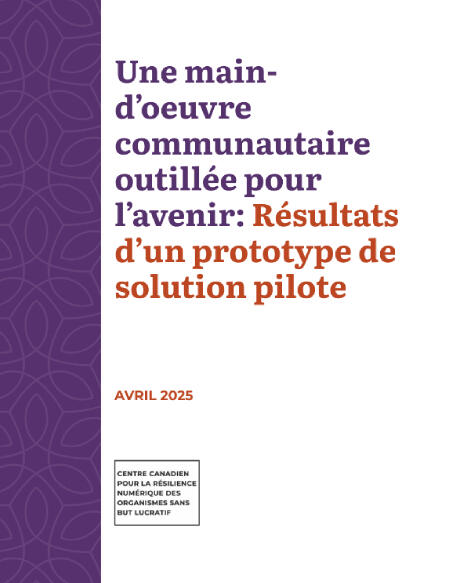
Ce rapport se penche sur la question urgente des lacunes en matière de compétences numériques au sein du secteur à but non lucratif au Canada, afin de proposer une analyse approfondie des défis auxquels sont confrontés les OBNL dans un monde de plus en plus numérique. Le rapport propose des solutions innovantes conçues en collaboration avec des organismes visant à renforcer les capacités numériques et à favoriser la résilience dans l’ensemble du secteur. En abordant des domaines critiques tels que la gestion des données, le leadership numérique et la cybersécurité, cette étude fournit des informations et des stratégies concrètes afin d’outiller les OBNL de tailles, de structures et de compositions diverses. Les conclusions de cette étude mettent en évidence l’état actuel de la préparation au numérique et tracent une voie claire pour aider OBNL à tirer efficacement parti de la technologie de sorte d’amplifier leur impact et s’adapter en toute confiance à l’ère numérique.
Combler les lacunes en matière de compétences numériques au sein des organismes à but non lucratif : concevoir des solutions potentielles
Voici principaux faits saillants de ce rapport :- Co-création de solutions : En collaboration avec huit organismes à but non lucratif, nous avons élaboré quatre options de prototypes conçus pour combler les lacunes spécifiques du secteur en matière de compétences numériques. Ces prototypes proposent des stratégies applicables à l’amélioration des compétences numériques dans les différents rôles et fonctions de l’organisme.- Cadre Développement des compétences numériques Plus (cadre DS+) : Le rapport présente un nouveau cadre qui articule les compétences numériques essentielles applicables aux OBNL de toutes tailles, structures et compositions. Le cadre DS+ est un guide complet permettant aux organismes d’évaluer et de développer leurs capacités numériques de manière méthodique.- Analyse du paysage du financement et de la formation : Le rapport répertorie les sources de financement et les formations actuellement disponibles pour les OBNL du pays.- Lacunes à combler en priorité en matière de compétences : L’étude met en évidence les domaines critiques où l’amélioration des capacités numériques du secteur à but non lucratif s’impose : la confidentialité et la sécurité des données, le leadership numérique et des compétences avancées en matière de gestion des données.- Options de prototypes : Le rapport présente en détail quatre options de prototypes, chacune répondant à un défi spécifique :
- Définir les besoins en matière de compétences numériques en fonction des rôles organisationnels
- Améliorer les pratiques et les processus de gestion des données
- Donner aux membres du personnel hautement qualifié(e)s les moyens d’encadrer et de guider leurs collègues
- Renforcer la confidentialité des données et les connaissances en matière de sécurité de l’organisme- Feuille de route pour la mise en œuvre : Le rapport détaille les étapes pour sélectionner et piloter le prototype le plus prometteur et propose une guide afin de combler les lacunes en matière de compétences numériques dans le secteur à but non lucratif.
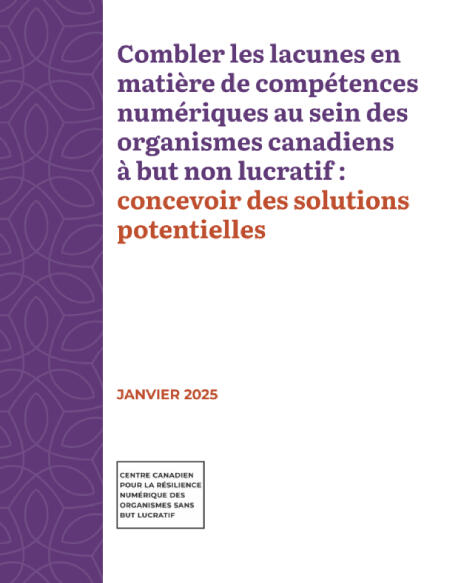
Notre résumé de recherche exhaustif se penche sur le paysage des compétences numériques des organismes à but non lucratif en mettant en lumière les défis et les possibilités critiques. Celui-ci contient des renseignements précieux sur l’importance des compétences numériques et sur les lacunes des niveaux actuels de compétence ainsi que des recommandations pour combler ces lacunes afin d’améliorer l’efficacité organisationnelle.Ce rapport sert de ressource aux organismes à but non lucratif, aux décideur(-euse)s politiques et aux bailleur(-euse)s de fonds pour combler les lacunes en matière de compétences numériques et accroître la résilience du secteur dans un environnement de plus en plus numérique.
Évaluer les lacunes en matière de compétences numériques au sein des organismes canadiens à but non lucratif
Les principales conclusions :- Importance des compétences numériques : selon 81 % des répondant(e)s, les compétences
numériques sont « nécessaires » ou « très importantes » pour la mission de leur organisation, ce qui souligne l’importance de la maîtrise des compétences numériques pour atteindre les objectifs des organismes à but non lucratif.- Lacunes en matière de compétences : près de la moitié des répondant(e)s ont décrit leur organisme comme ayant des compétences numériques « de base » ou comme « débutant », ce qui représente un écart considérable entre l’importance perçue et les niveaux actuels de compétence.- Contraintes financières : l’utilisation limitée de ressources payées en raison de contraintes financières suggère un besoin de directives ciblées à faible coût pour permettre aux organismes à but non lucratif d’élaborer et de mettre en œuvre leur stratégie de perfectionnement
numérique.
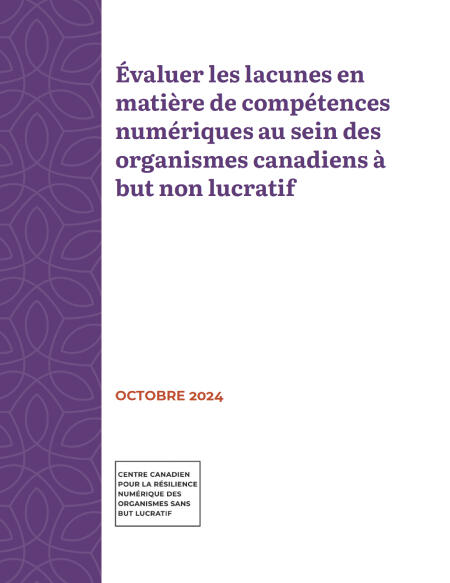
Le secteur à but non lucratif canadien subit une transformation numérique importante et est confronté à des difficultés pour répondre à la demande croissante de compétences numériques. Ce rapport révélateur se penche sur les données du recensement canadien afin d’évaluer la composition de la main-d’œuvre technologique au sein du secteur à but non lucratif.
La main-d’œuvre technologique dans le secteur à but non lucratif au Canada
Les principales conclusions :- Les organismes à but non lucratif souffrent d’une pénurie de travailleur(-euse)s technologiques, avec moins de 1 % de leur main-d’œuvre dans les professions technologiques, contre une moyenne de 5 % dans d’autres secteurs.- Les travailleur(-euse)s technologiques du secteur à but non lucratif sont beaucoup moins rémunéré(e)s, avec un salaire annuel moyen inférieur de plus de 30 000 $ à celui des travailleur(-euse)s technologiques des autres secteurs, ce qui représente une
baisse de salaire de 33 %.- Pour le même travail, les travailleur(-euse)s technologiques des organismes à but non
lucratif sont nettement moins rémunéré(e)s; les spécialistes en informatique gagnant 20 % de moins dans les organismes à but non lucratif que dans les autres secteurs.- Les travailleur(-euse)s technologiques des organismes à but non lucratif sont plus
diversifié(e)s en matière de genre et d’identité autochtone, mais les femmes, les peuples autochtones et les minorités visibles ont un moins bon salaire que les autres travailleur(-euse)s des organismes à but non lucratif qui effectuent d’autres fonctions.
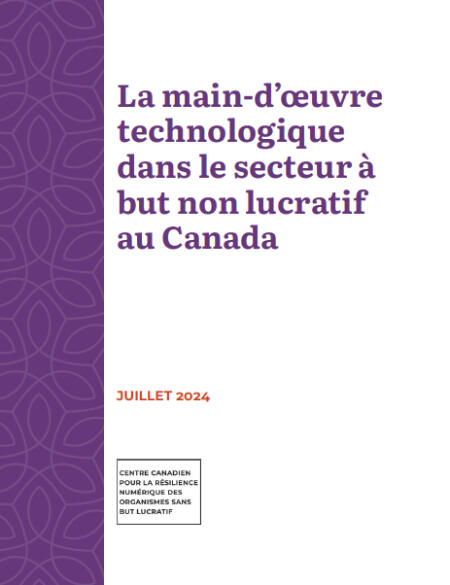
Bien qu’ils emploient plus de 2 millions de Canadien(ne)s, de nombreux organismes à but non lucratif ne disposent pas des compétences numériques nécessaires pour répondre à la demande croissante. Ce rapport informatif souligne l’importance de comprendre la demande actuelle de compétences numériques dans ce secteur et fournit des informations précieuses grâce à l’analyse des données relatives aux offres d’emploi.
La demande de compétences numériques dans le secteur à but non lucratif au Canada
Les principales informations :- Les emplois du secteur à but non lucratif ont une demande plus faible de compétences numériques par rapport aux emplois connexes du secteur du savoir. Ils contiennent également moins de compétences numériques uniques, en particulier dans le domaine du développement de logiciels et de produits et des compétences numériques en
matière de données, dont l’intensité numérique est généralement plus élevée.- La compétence Microsoft la plus demandée dans les emplois du secteur à but non lucratif est Microsoft Office, ce qui indique un besoin plus important de maîtrise des logiciels de bureautique de base par rapport aux compétences plus techniques requises dans d’autres secteurs.- Bien que les besoins numériques pour les emplois du secteur à but non lucratif ne soient peut-être pas aussi importants que ceux d’autres emplois du secteur du savoir, certains indices montrent que les emplois du secteur à but non lucratif s’adaptent, dans une certaine mesure, aux tendances en matière de compétences numériques.
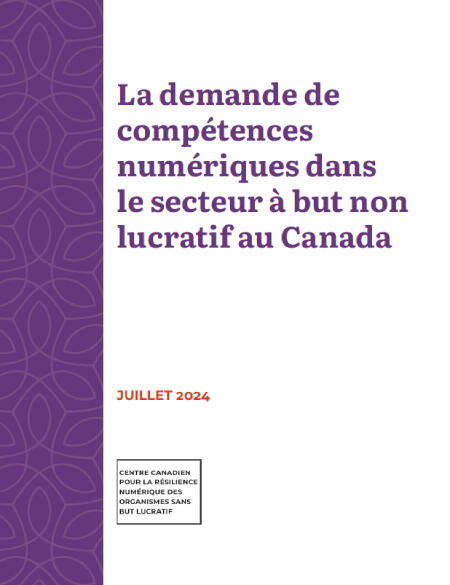

Prototype Renforcer les capacités de gestion des données
Ce prototype a été élaboré, dans le cadre du projet « Une main-d’œuvre communautaire outillée pour l’avenir » afin de renforcer les compétences en matière de gestion des données et aider les organisations à répondre à leurs besoins en matière de compétences numériques par l’entremise d’activités guidées qui incitent les utilisateur(-trice)s à documenter les processus de données, à identifier les points de données clés, à évaluer les processus afin de les améliorer et à identifier les compétences requises.
L’objectif du prototype Renforcer les capacités de gestion des données est d’aider les organisations à :- Renforcer les compétences numériques par l’entremise d’exercices pratiques qui visent à développer la confiance et la capacité à prendre des décisions éclairées sur les données et leur gestion.- Approfondir la compréhension des données et des processus afin d’améliorer l’efficacité et la qualité des données.- Identifier les besoins en matière de compétences propres à chaque rôle pour soutenir les processus clés et permettre une formation et un développement des compétences axés sur les rôles du personnel.Pour en savoir plus sur l’élaboration du prototype et les résultats du projet pilote, consultez le rapport « Combler les lacunes en matière de compétences numériques au sein des organismes canadiens à but non lucratif : résultats d’un prototype de solution pilote ».
Utilisation du prototype
Ce prototype se compose d’une activité d’entrée clé, soit la création d’une carte de récits d’utilisateur(-trice), et de trois activités de synthèse distinctes qui s’appuient sur la carte de récits d’utilisateur(-trice). Chaque activité prend environ deux à quatre heures et l’ensemble du processus doit se dérouler sur plusieurs semaines afin de laisser au personnel le temps nécessaire à la réflexion et à la validation.Les quatre documents d’instruction pour chaque activité contiennent une vue d’ensemble de l’activité, des objectifs d’apprentissage, des conseils préparatoires et des instructions étape par étape et comprennent des liens vers des modèles et des exemples. Ce prototype a pour but de guider et non de prescrire une approche. Chaque activité propose des formats, des modèles et des exemples, mais n’hésitez pas à les adapter à votre organisation. Nous vous encourageons à utiliser un processus que vous avez déjà cartographié ou un processus que vous connaissez bien ou à accorder la priorité aux activités de synthèse en fonction des besoins actuels ou des contraintes de temps de votre organisation.
Activité d’entrée clé : activité de cartographie des récits d’utilisateur(-trice)
Ce guide vous aidera à sélectionner un processus approprié et vous fournira des instructions étape par étape pour créer une carte de récits d’utilisateur(-trice). Cet outil visuel documente chaque étape du processus, y compris la personne qui effectue l’action, les données collectées et la manière dont ces éléments interagissent. Les résultats de cette activité serviront de base aux activités de synthèse suivantes.
L’ activité de synthèse 1 : Comprendre vos données
Ce guide à l’activité Comprendre vos données contient des instructions pour trois sous-activités clés qui vous aideront à :- Décrire vos données et leur utilisation.- Indiquer qui a accès à quelles données.- Réfléchir à la qualité de vos données.
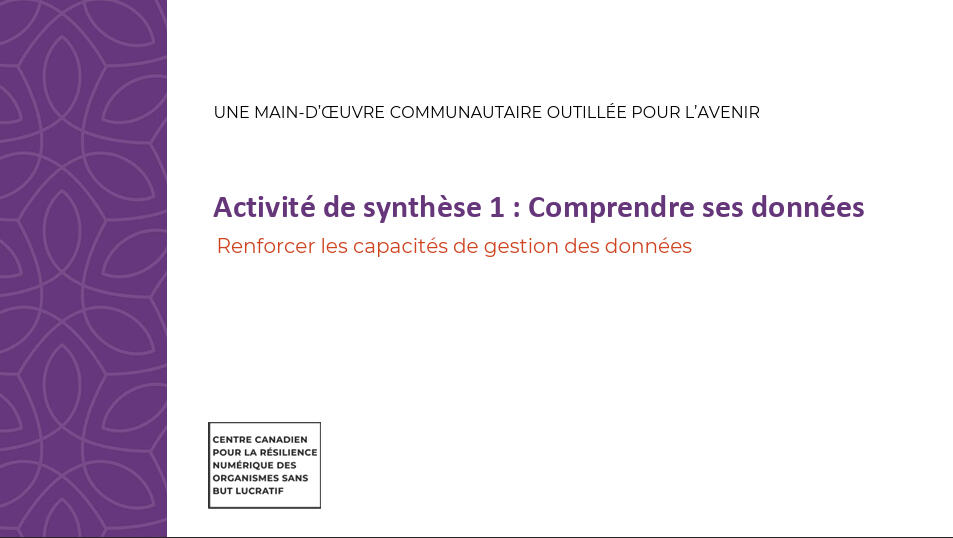
L’ activité de synthèse 2: Évaluer vos processus
Ce guide à l’activité Évaluer vos processus contient des instructions pour trois sous-activités clés qui vous permettront de réfléchir au processus choisi en :- Examinant comment les utilisateur(-trice)s interagissent avec votre processus.- Découvrant les points faibles et les redondances.- Identifiant les possibilités d’automatisation.
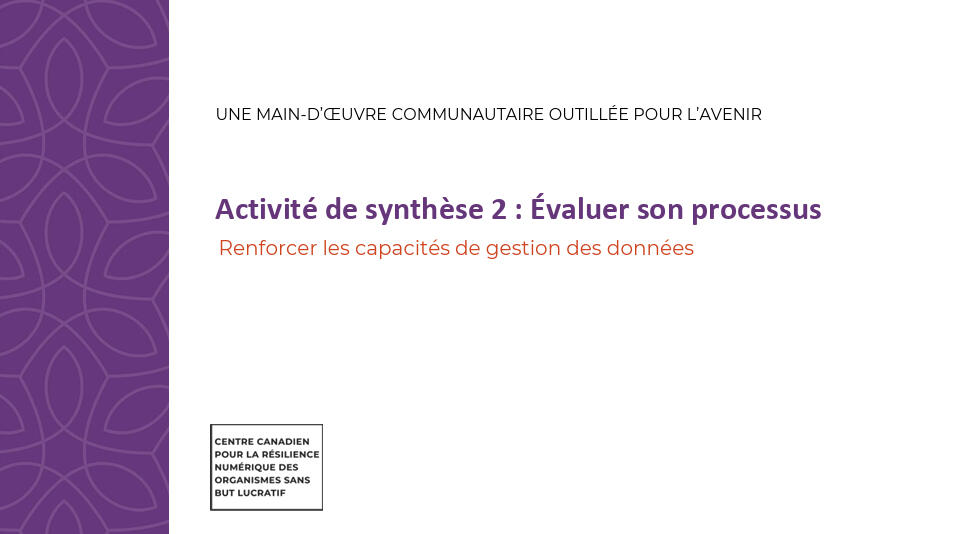
L’ activité de synthèse 3 : Identifier vos besoins en compétences
Ce guide à l’activité Identifier vos besoins en compétences contient des instructions pour deux sous-activités clés qui vous permettront de comprendre les compétences nécessaires à votre processus en :- Articulant les compétences requises pour chaque rôle impliqué dans le processus.- Identifiant les possibilités d’amélioration des compétences en se référant au cadre Développement des compétences numériques Plus et aux ressources connexes.
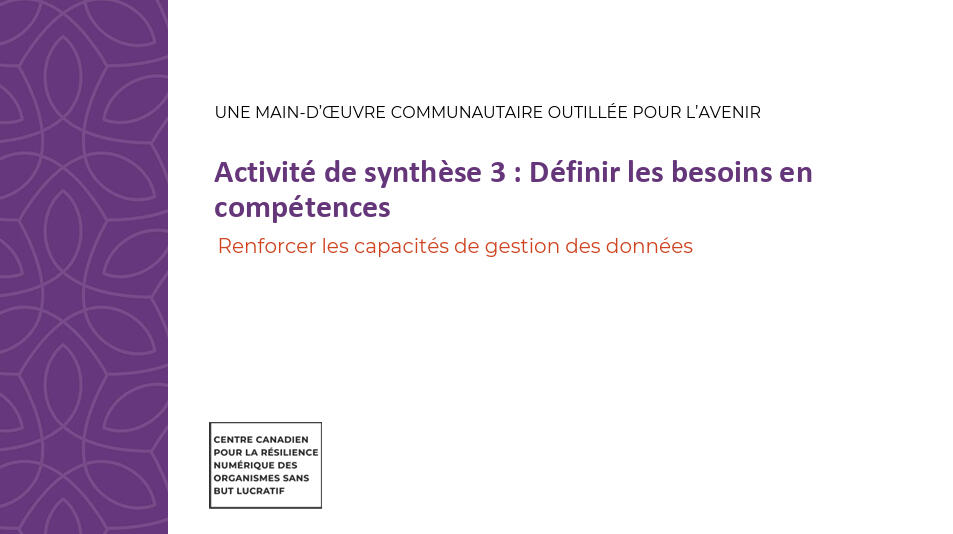
Quelle est la prochaine étape?
Pour continuer à perfectionner vos processus en matière de données et planifier intentionnellement les changements, téléchargez notre modèle simple de gestion de projet afin de vous aider à définir, à hiérarchiser et à planifier vos prochaines étapes ou utilisez le vôtre.Ce prototype et les outils connexes sont destinés à être utilisés à plusieurs reprises et à être élargis au fur et à mesure que vous examinez d’autres processus au sein de votre organisation. Nous vous encourageons à continuer à traiter les résultats de ces activités comme des documents évolutifs qui sont continuellement mis à jour afin de :- Soutenir l’amélioration continue des processus de votre organisation.- Faciliter l’intégration du nouveau personnel ou le développement du personnel existant.- Encourager la planification intentionnelle en ce qui concerne vos données et vos processus liés aux données.
Le renforcement des capacités de gestion des données est un effort à long terme qui jette les bases d’activités plus avancées liées aux données.
Élaboration du prototype
Ce prototype a été conçu conjointement avec huit partenaires à but non lucratif qui ont contribué à l’identification, à l’élaboration et à l’essai pilote de ce prototype. Nous tenons à remercier nos partenaires de conception pour leurs précieux commentaires et leurs contributions à l’élaboration de ce prototype.
- À deux mains/Head & Hands (Montréal, Québec)
- CUPS Calgary (Calgary, Alberta)
- Inclusion NB (Fredericton, Nouveau-Brunswick)
- Malvern Family Resource Centre (Scarborough, Ontario)
- Skills for Change (Toronto, Ontario)
- Le conseil économique des femmes (Toronto, Ontario)
- YMCA Winnipeg (Winnipeg, Manitoba)
- Yukon Learn (Whitehorse, Yukon)

Mission
Ce projet est conçu avec un calendrier stratégique de 17 mois pour combler le déficit croissant en matière de compétences.
Notre mission est de :
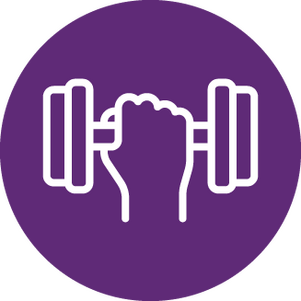
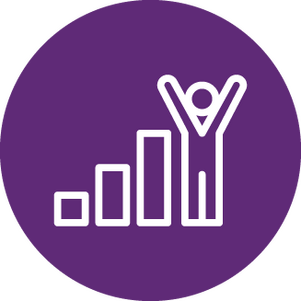
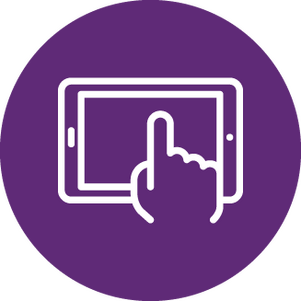
Préparer l’avenir des organisations à but non lucratif :
faire en sorte que les entités à but non lucratif soient résilientes et puissent continuer à exceller dans la prestation de leurs services dans une ère numérique en constante évolution.
Perfectionner les compétences de la main-d’œuvre :
développer des compétences numériques fondamentales et avancées pour élever les capacités de la main-d’œuvre du secteur à but non lucratif.
Mettre en œuvre le modèle
« Compétences pour réussir » :
fournir une formation pratique et adaptée, à la fois efficace et largement applicable, garantissant qu’un large éventail de professionnel·le·s du secteur à but non lucratif puissent profiter de nouvelles compétences et les mettre en œuvre immédiatement.
Objectifs du projet :

Comprendre l’offre actuelle et la demande future de Développement des compétences numériques Plus (DS+)

Analyser les écarts entre l’offre et la demande de Développement des compétences numériques Plus (DS+)

Co-concevoir et tester rapidement des solutions pour combler l’écart
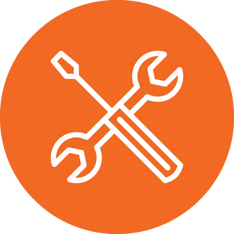
Créer un modèle de talents Développement des compétences numériques Plus (DS+) évolutif
Les résultats de ce projet comprendront des rapports publics, des notes de recherche et des recommandations pour informer les futures stratégies du secteur en matière de formation et de talents.
Qu’est-ce que Développement des compétences numériques Plus (DS+)?
Le projet Développement des compétences numériques Plus (DS+) englobe les compétences numériques ainsi que les compétences en matière de communication, de créativité, d’innovation, d’adaptabilité et de résolution de problèmes.

Approche
Notre approche est double, mettant l’accent à la fois sur la praticité et l’évolutivité :

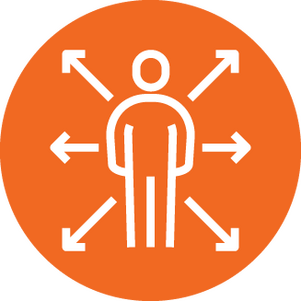
Formation en compétences fondamentales :
une série complète de modules de formation conçus pour inculquer des compétences numériques essentielles.
Développement des compétences transférables :
des compétences polyvalentes pouvant être appliquées à divers rôles et défis, garantissant ainsi une adaptabilité à long terme.
Impact
À l’issue de ce parcours transformateur de 17 mois, le secteur à but non lucratif du Canada sera en mesure de :
▸ Composer avec les complexités de l’ère numérique avec confiance et expertise.
▸ Améliorer sa prestation de services grâce à l’intégration de solutions numériques.
▸ Favoriser une culture d’apprentissage continu et d’innovation au sein de ses organisations.
Partenaires du projet

Imagine Canada, Blueprint ADE, The Dais, et le Conseil de gouvernance numérique se sont unis pour s’attaquer à un problème important du marché du travail national par le biais du projet intitulé « Une main-d’œuvre communautaire outillée pour l’avenir ».Cette initiative est dirigée par un comité directeur formel qui se réunit tous les mois et qui est complété par un comité consultatif se réunissant tous les trimestres.Ce projet est financé par le programme « Compétences pour réussir » du gouvernement du Canada.

Comité consultatif
Engagement
Si vous êtes une organisation à but non lucratif, un·e donateur·rice, un·e spécialiste ou un·e leader d’opinion, nous vous invitons à participer à notre projet.Participez à nos ateliers de co-conception, partagez vos idées et votre expertise, ou soutenez-nous en répondant à des sondages et en les partageant avec d’autres personnes susceptibles d’être intéressées. Ensemble, nous pouvons créer un modèle de perfectionnement des compétences efficace qui profitera à l’ensemble du secteur.
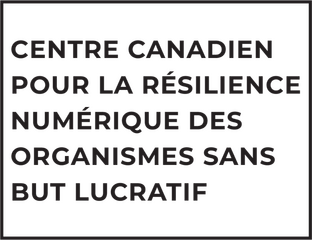
Une main-d’œuvre communautaire outillée pour l’avenir
Libérer le potentiel numérique du secteur à but non lucratif pour renforcer les services communautaires.